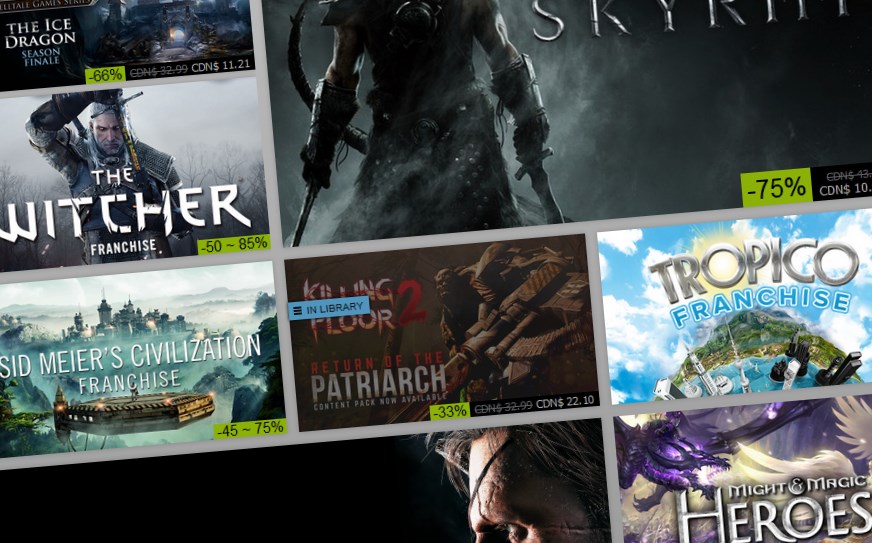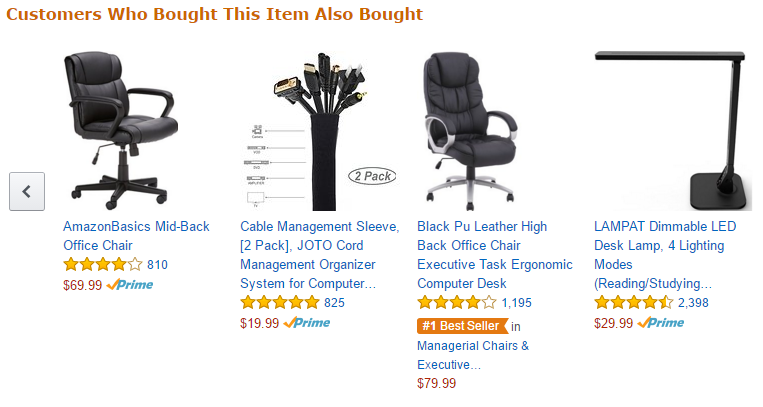Show us your data, Steam

Valve has a reputation for being a data-driven machine. It’s unclear how accurate that is—the head of the famously opaque organization got surprisingly emotional this week when he publicly fired a host and the production team of the Dota 2 Shanghai Major. But that incident is an outlier: Valve's love of data is written all over Steam. Look at your profile page: Valve keeps track of every game you own and for how long you’ve played it and how many other people have the same achievements as you. So what does Valve do with all this information? I'm not sure.
Right now on the Steam store we can see how many people reviewed a game positively, some popular tags, friends who own the game, and then some general metadata, like achievement support and available languages. Head over to SteamCharts and we can also see about how many people are playing any given game, while Valve's own Steam statistics page only lists the top games by concurrent users. But there’s much more to show.
I want Steam to show me what the mean total playtime of a game is, or how many players returned to it after more than six months, or if people who played over 100 hours of Rocket League also like to play this game. Why not use that to help us discover new games and make decisions about what to play? Raw data can’t replace critical writing, and I don’t want it to. I’m a reviewer. But I don’t fear supplementing arts and entertainment criticism with numbers—it only adds context for those who are reading about a game but haven’t played it.
The stigma held against short games could be thwarted with the legitimacy of being a Steam subcategory.
There are valid arguments against displaying raw data on store pages, though. Reducing a game to its typical playtime, for instance, might inadvertently suggest that the longer a game takes to finish the more valuable it is, a position I fully disagree with. But it doesn’t need to be presented as a negative. Amazon sorts some of its Kindle ebooks into a “short reads” section, and sometimes that’s what I’m looking for. With positive language (one-sitting, short and sweet) the stigma could be thwarted with the legitimacy of being a Steam subcategory. And if I see a game advertised as a giant, endless, survival-crafting hellscape, but find no one plays it for more than a few hours, I’m cautioned to do more research.
For online multiplayer games, I’d love to see the number of current concurrent players and the average on a typical day shown right on the store page, as well as a breakdown of the top countries it's played in. That could again ruffle developer feathers: just because a game has a small playerbase, like Ratz Instagib, doesn't mean it isn't good, and how can its playerbase grow if potential buyers are turned off by the statistics? Counterpoint: anyone who buys it is going to find out one way or another how many people are playing, and if they don't like sitting on hold in matchmaking they can refund it anyway. It's just a matter of when they find out.

The use of anonymized data to recommend products is no scary new thing. Amazon happily tells us what people who bought the product we're looking at also bought, and which items are often purchased together. Steam, meanwhile, just shows some games under a "more like this" header, and it's not clear how those are chosen (tags?). It also designs its storefront around games we've played and looked at, but we don't know how it's coming to those conclusions. I wish it would just tell me why it thought to recommend Dota 2 because I looked at Master of Orion.
Where Amazon gets creepy about it, Steam doesn’t have to. I hate how Amazon will jot down that I looked at microfiber slippers and then leverage its web-wide ad network to show me foot-warmth-related banners for two weeks. I don’t want that. I just want the data Steam already has to be aggregated and displayed. We could also see how often players return to a game, for instance—is it months, or years? Or how about the frequency of updates, especially for Early Access games?
Keep up to date with the most important stories and the best deals, as picked by the PC Gamer team.
If it came from opt-in sharing to avoid a privacy scandal, detailed demographic data could show us the typical system specs a game is played on—Valve already runs hardware surveys, anyway. In fact, the Steam hardware survey is probably the best public reporting of what PC gamers are using to play games. I want Valve to expand that idea to cover the games it sells. What’s rising in popularity? What’s falling? Where are competitive CS:GO players going when they want a break from CS:GO? I’d be interested in knowing what that is.
We can look at some of this information through other sites, such as SteamSpy, but there's some estimating involved and not a lot of ways to mix and match the data. Valve has all the data, and yet we get more information from miners outside of Valve. Making it easier to see the raw, real data would be a distinctly PC choice: more transparency and deeper analysis than you get in manicured, less open stores.
All of this would be hard to fit into Steam’s already crowded store pages, which are packed with less interesting metadata, but if a nice, clean chart of player data were to appear, I’d welcome it. I don't love arguing for a corporation to collect our data and sell us stuff with it, but I figure that, as it is, the data's already being collected. Valve already benefits from studying our buying and playing habits, so we should too.

Tyler grew up in Silicon Valley during the '80s and '90s, playing games like Zork and Arkanoid on early PCs. He was later captivated by Myst, SimCity, Civilization, Command & Conquer, all the shooters they call "boomer shooters" now, and PS1 classic Bushido Blade (that's right: he had Bleem!). Tyler joined PC Gamer in 2011, and today he's focused on the site's news coverage. His hobbies include amateur boxing and adding to his 1,200-plus hours in Rocket League.

